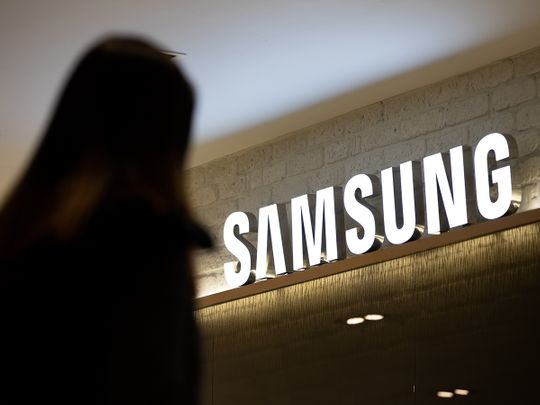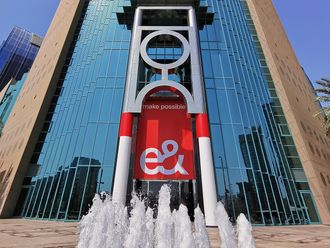
Seoul: South Korean tech giant Samsung Electronics posted a 58.57 per cent rise in first-quarter net profits on Thursday, largely driven by steady memory chip demand and brisk smartphone sales.
The world’s biggest memory-chip maker is the flagship subsidiary of the giant Samsung group, by far the largest of the family-controlled empires known as chaebols that dominate business in South Korea, Asia’s fourth largest economy.
The conglomerate is crucial to the South’s economic health — its overall turnover is equivalent to a fifth of the national gross domestic product.
The firm said net profit in the January-to-March period was 11.32 trillion won (Dh32.87 billion) — up 58.57 per cent from the same period a year earlier.
The tech industry has been hit hard by a shortage of components for chipmaking, blamed on a boom in global demand for electronic products and disruption to supply chains caused by the pandemic.
But analysts say this has largely been benefitting the world’s leading chipmaker.
Last year saw a surge in chip prices thanks to strong demand for those used in personal devices and data centres, helping the firm hit record annual sales.
Samsung’s performance “continues to be lifted by the semiconductor segment, supported by memory chip — both DRAM and NAND — demand from data centers,” Gloria Tsuen, vice president of Moody’s Investors Service, told AFP.
Tsuen added that a disruption at a rival NAND flash chip plant — owned by American firm Western Digital and Japan’s Kioxia — has also benefited Samsung “due to reduced market supply”.
The firm’s operating profit rose 50.50 per cent to 14.12 trillion won, while revenue was also up 18.95 per cent to 77.78 trillion won.
Samsung Electronics said it had “posted a record consolidated revenue for the third straight quarter of KRW 77.78 trillion and operating profit of KRW 14.12 trillion, a 51 per cent increase from a year earlier.”
Keeping capacity high
Samsung has aggressively stepped up investment in its semiconductor business as the world battles chip shortages.
In November, it announced a new microchip factory in Texas, a $17 billion investment. The plant is expected to be operational by the end of 2024.
The firm is also investing in the development of advanced technologies such as artificial intelligence, robotics and 5G/6G communications.
“Memory chip makers generally need to keep capacity high to support technology migration,” Tsuen said.
“Samsung is also in the foundry segment, and the new fab in Texas is an example of increased investment in that area as well,” she said, referring to a semiconductor fabrication plant.
Samsung Electronics said its “memory business achieved a record-high in quarterly sales for servers amid solid demand.”
In smartphones, the firm’s new flagship lineup — the Galaxy S22 series — sold 60 per cent more than the S21 in its first three weeks in the United States, according to research firm Counterpoint.
“Strong sales of the Galaxy S22 series since its launch in Q1 helped drive the revenue growth, on the back of Galaxy S22 Ultra with S-Pen garnering positive feedback from the existing Galaxy Note customers,” Samsung said in a statement.










